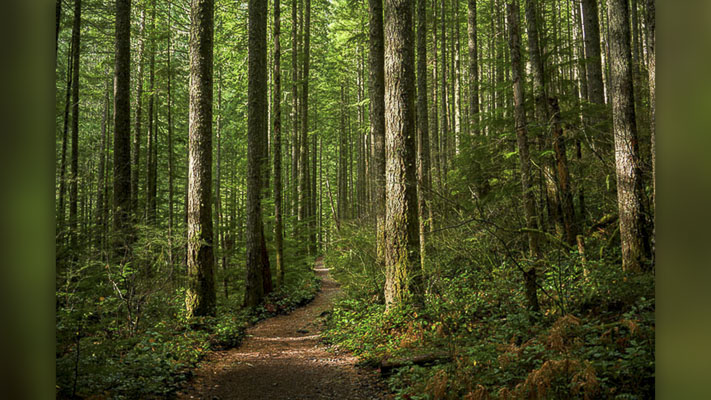
Pam Lewison of the Washington Policy Center believes that, from a policy perspective, the rub comes from an agency heading down a path that leads away from wildfire management
Pam Lewison
Washington Policy Center
Forest health, climate change, and a plan that got almost no input before being announced is at the heart of the “carbon project” announced by the Washington State Department of Natural Resources last week.

The project, developed by Finite Carbon, proposes to set aside 10,000 acres of forest in Western Washington, once set aside for marbled murrelet habitat and then cleared for logging, for carbon offsets that can be purchased by large companies in trade for their greenhouse gas emissions.
The act of setting aside 10,000 acres of forest as “protected” for corporate carbon offsets may contradict the goal responsibly thinning, logging, and managing our forests for wildfire prevention. The plan settles into the notion that logging and forest management are inherently “bad” and should be avoided. Earlier this fall, some cities in Western Washington recorded the worst air quality in the world courtesy of wildfires burning on the west side of the Cascades.
For some in Eastern Washington, the smoky days in Seattle and elsewhere gave Western Washingtonians a taste of what it is like to live on the other side of the wildfire coin. Persistent fires in Eastern Washington for several years running have created smoke-filled days and ongoing calls for forest management, the opening of more logging and grazing permits, and cooperation between local, state, and federal fire response agencies.
In the vast landscape of the 2.1 million acres of forest DNR manages, 10,000 acres seems small in comparison but it opens a door for similar projects and carbon purchases down the road.
Additionally, the proposed carbon program dismisses the impact it will have on public school funding and the other services timber sales provide to our state. According to DNR’s own financial disclosures, timber sales in 2021 generated nearly $69 million, to be disbursed to various beneficiaries including our public schools.
Trading forest management and public school funding for carbon offsets is a bad trade and even supporters of carbon offsets are dubious about its lasting benefits if they are not outlined in specific and permanent terms. If, for example, offsets are sold and then a forest is cut down some time later, the offsets are effectively erased. To be considered truly beneficial, offsets must contribute beyond the measures already taken to reduce emissions by a company.
From a policy perspective, the rub comes from an agency heading down a path that leads away from wildfire management that includes thinning, logging, and other fire preparedness measures and potentially taking away public-school funds without significant input from the legislature or the public.
If DNR wants to truly show itself as an agency dedicated to land stewardship, then it should pause the project, assess its positive and negative attributes, and allow Washingtonians to weigh-in on how they want their forests to be cared for. Unilateral actions made with little transparency lead to distrust of public agencies. It is important for the health of our forests and for the continued funding of our schools, that DNR put all its “carbon project” cards on the table.
Pam Lewison is the director of the Initiative for Agriculture at the Washington Policy Center.
Also read:
- Opinion: Changes made — and not made — to WA Cares in 2025Elizabeth New (Hovde) outlines 2025 changes to WA Cares, including new automatic exemptions and eligibility tweaks. She also warns that exemption rules could shift, potentially forcing some private insurance holders back into the program.
- Letter: Can the president direct the U. S. Military to strike another country?Vancouver resident Jim McConnell questions the Constitutionality of presidential military actions without Congressional approval, citing historical precedents and legal opinions in response to President Trump’s 2025 strike on Iran.
- Letter: Social Security applauds passage of legislation providing historic tax relief for seniorsAnna Miller shares a letter celebrating new legislation that eliminates federal income taxes on Social Security benefits for nearly 90% of recipients. The bill also enhances deductions for seniors, fulfilling a key promise on retirement protection.
- POLL: What’s the biggest concern you have with the current I-5 Bridge replacement plan?As costs rise and Oregon’s funding fails, concerns mount over the current I-5 Bridge replacement plan. Clark County Today asks readers: what’s your biggest concern?
- Opinion: Your cost of living is about to go up as the majority party’s new taxes and fees kick inRep. John Ley shares a legislative update on rising costs across Washington, including gas taxes, childcare, housing, and business impacts. He highlights concerns about state spending and new transportation policies.










